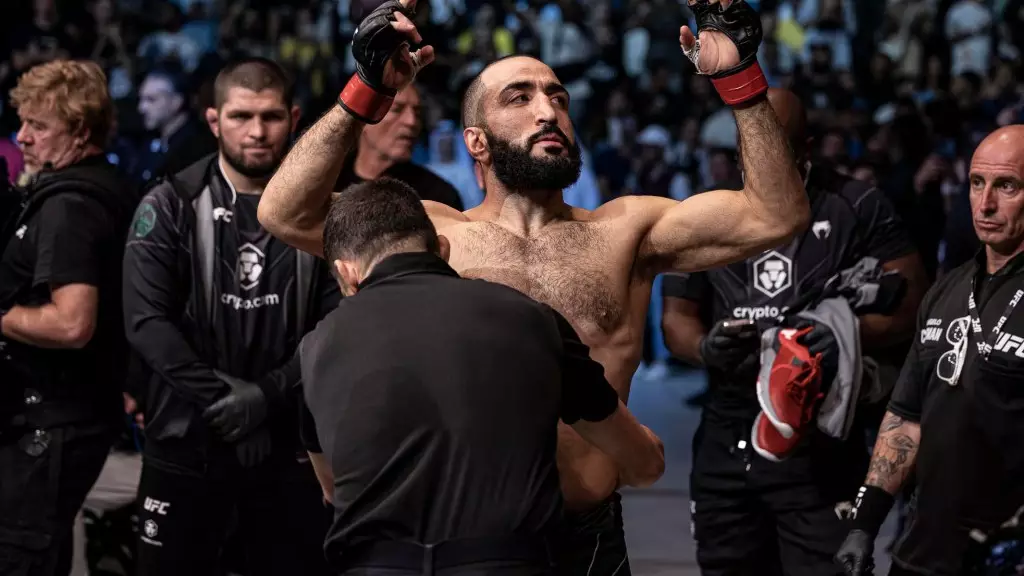Khabib Nurmagomedov, a revered figure in the UFC Hall of Fame, finds himself navigating a complicated emotional landscape regarding potential fights between champions from his own camp. Specifically, the idea of lightweight champion Islam Makhachev going toe-to-toe with welterweight champion Belal Muhammad is something he prefers to avoid. Makhachev, with an impressive record of 25 wins against just one loss in mixed martial arts (MMA), is keen on ascending to welterweight to pursue dual-champion status. However, upon learning that his fellow team member, Muhammad, currently holds the title in that division, Makhachev’s ambitions appear to be stymied, creating a noteworthy tension in the provided dynamics of their careers.
Nurmagomedov’s reluctance to assist Makhachev in preparation for a bout against Muhammad highlights the emotional complexities entwined in relationships within combat sports. Being close friends and training partners complicates the competitive spirit as Nurmagomedov candidly states in an interview. His hesitance to strategize against Muhammad demonstrates the potential for emotional conflict that often transcends the sport’s competitive essence. The former champion reveals that he would find it difficult to mentally gear up Makhachev to defeat someone he respects and has shared countless training sessions with. “My heart is not OK,” he admits, revealing the inner turmoil he faces in a sport that often demands loyalty and personal connections to be set aside for the sake of competition.
Adding to the complexities, Muhammad’s recent success, going unbeaten in 11 consecutive fights, makes any bout against him a daunting task for any opponent. Nurmagomedov recognizes Muhammad’s skill set, noting that breaking through his defense for a 25-minute fight is no easy feat. The unpredictability in Muhammad’s wrestling and striking allows him to maintain a tactical edge, making a strategy to defeat him challenging. This realization speaks to the increasing skill level and evolving strategies present in today’s UFC fighters. The difficulty in formulating a concrete game plan against Muhammad is an acknowledgment of the welterweight champion’s aptitude for mixing skills—something that could set him apart from many competitors in the octagon.
In light of these challenges, Nurmagomedov suggests that a more prudent matchup would involve Muhammad facing Kamaru Usman, the former welterweight champion with a strong track record. This suggestion underscores not only Nurmagomedov’s respect for Usman but also an understanding of the sport’s dynamics, where both respect and rivalry can coexist. For Nurmagomedov, creating competitive pairings that maintain respect among fighters is vital. The idea of Muhammad vs. Usman caters to a narrative that honors the path both have taken in their careers without compromising their camaraderie or shared history within their team.
The landscape of UFC’s championship hierarchy can foster complex emotional ties, particularly among fighters stemming from the same training background. Khabib Nurmagomedov’s insights into this dynamic provide a window into the psyche of an athlete who values both competition and loyalty. Rather than forcibly pit his champions against one another, there is a compelling argument for carefully curated matchups that maintain the integrity of friendships while still pushing the limits of competitive spirit within the sport.

